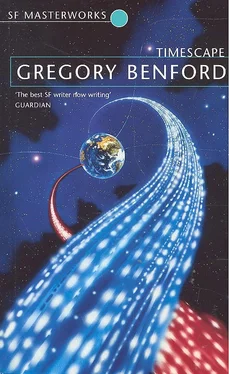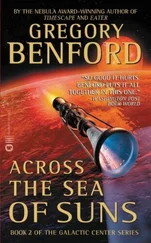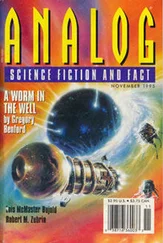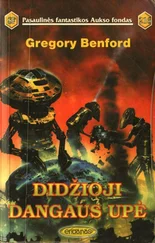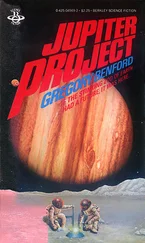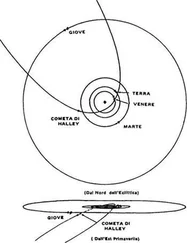Peterson asked his Sek for an update. He found the Kiefer call still facing the blank buzzing of a busy signal, and two underlings leaving recorded messages he would check later.
He reclined in his armchair and studied his office wall. Quite an array, yes. Pseudoparchment citations for bureaucratic excellence. Photos of himself beside various charismatic sloganeers with their buzzword bibles. Practitioners of leaderbiz, smiling at the camera.
The committee meeting this morning had its share of those, along with earnest biochemists and numerical meteorologists. Their reports on the distribution of the clouds were unsettling but vague. The clouds were further examples of “biological cross function,” an all-purpose term meaning interrelations nobody had thought of yet. Apparently the circumpolar wind vortex, which had shifted towards the equator in recent years, was picking up something from the region near the bloom. The unknown biological agents being carried by the clouds had caused withering of the Green Revolution crop strains. Besides giving uniform high yields, the Green Revolution plants also had uniform weaknesses. If one became diseased, they all did. How devastating the strange yellow-tan clouds might be was unknown. Something odd was in the biocycle, but research had not pieced together the puzzle as yet. The meeting had broken up into rivulets of indecision. Belgian biologists argued with plump disasterologists, neither with any hard evidence.
Peterson pondered what it might mean, while leafing through some reports. Inventories, assessments, speculative calculations, order-of-magnitude truths. Some were in the clunky gingerbread of Cyrillic, or the swoops of Arabic script, or Asia’s ant squiggles, or the squared-off machine type of ModEng. A tract on Erdwisenschaft made man a minor statistical nuisance, a bug skittering over a world reduced to nouns and numbers. Peterson was at times entranced by the mix of minds in the World Council, the encyclopedic power they tapped. Voices, a babble of voices. There was the furious energy of the Germans; the austere and finally constricting logic of la bella France; the Japanese, smothered now in industrial excess; strangely sad Americans, still strong but like an aging boxer, swinging at sparring partners no longer there; the Brazilians, wandering now onto the world stage, blinking into the spotlight, dazed. Several years ago he had gone on a tour of Ethiopia with a clucking band of international future-seers and watched their calculus collide with life. In dusty red-rocked gorges he had seen men attacking and scattering ant hills to snatch away the crumbs of wheat stored there. Naked women, colored like mud and with thin sacks for breasts, climbed mimosa trees to clip the green shoots of fresh growth, for soup. Children gathered stuff like briars, to chew for moisture. Trees were stripped bare of bark, gnawed at the roots. Skeletons baked white and luminous near brackish water holes.
The forecasting methodologists had paled and turned away.
When he was a boy he had watched the National Geographic programs on TV and come to think of the almost mythic beasts in Africa as distant friends, playing on the horizon of the world. Lions, vast and lazy. Giraffes, their stiff-necked lope taking them teetering into the distance. He’d had a boy’s dreamy love of them. Now they were nearly gone. He had learned a lesson there, in Africa. Soon there would be nothing bigger than a man on the planet that was not already a client, a housepet. Without the giants mankind would be alone with the rats and the cockroaches. Worse, perhaps, he would be alone with himself. This fuzzy issue had not occupied the futurologists. They cluckclucked over butter mountains here versus starvation there, and supplied their own recipes. They loved their theories more than the world. Forrester, rattling his numerical fantasies like beads; Heilbroner, urging mankind into a jail so they all could be sure of eating; Tinbergen, who thought one good crisis would shape us up; Kosolapov, whose Marxist optimism sat waiting patiently for the hacksaw of history to cut away capitalism, as though poverty were civilization’s headcold, not a disease; his opposites, the followers of Kahn, with cocky assurance that a few wars and some starving wouldn’t get in the way of higher per capita income; Schumacher’s disciple, with his shy faith that the hydrocarbon cartels would decide cottage industries were best after all; and Remuloto, the Third Industrial Revolutionist, seeing salvation in our starry satellites.
Peterson remembered with a smile that the US Department of the Interior had made a thorough prediction of trends in 1937, and had missed atomic energy, computers, radar, antibiotics, and World War II. Yet they all kept on, with this simple-minded linear extrapolation that was, despite a bank of computers to refine the numbers, still merely a new way to be stupid in an expensive fashion. And they were filled with recipes. Order up more fellow-feeling, y’see, and we’ll do better. To survive now Man had to be more patient, preferring long-range rational solutions to global problems, while suspending his nasty old irrational demands for short-range local fixes. They all wished some Lockeian dream of the future, a natural law which set forth human rights and human obligations simultaneously. An unwritten law, but reachable by reason. A mythology of stoic endurance would do the job, get us through the pinch. But who had one for sale? The secular faith in the technological fix had trickled away into astrology and worse. Jefferson’s descendants were sucking up whatever liberties they could and leaving for posterity a used-up garbage dump. Au revoir, Etats-Unis! Check your beclouded vision at the door. Peterson glanced at the one item on his wall that was out of place, a century-old sampler:
All nature is but art, unknown to thee;
All chance, direction, which thou canst not see;
All discord, harmony not understood;
All partial evil, universal good;
And spite of pride, in erring reason’s spite
One truth is clear: whatever is, is right.
He laughed as the telephone rang. “Hello, Ian?” Kiefer’s voice was thin and reedy. “Happy to hear from you,” he said with artificial friendliness.
“I don’t think you’ll be so happy in a minute.”
“Oh?” Kiefer had not responded with the expected jovial banter that usually opened executive conversations.
“We’ve turned up the underlying process in that diatom bloom.”
“Good, then you can rectify it.”
“Eventually, yeah. Problem is, it’s a runaway. The process enters a phase where it can take the jacket of the plankton and change that material into the original pesticide-based molecules.”
Peterson sat very still and thought. “Like a religious movement,” he said to have something to say.
“Huh?”
“Turns heathen into apostles.”
“Well… yeah. Point is, that’s what makes it spread so fast. Never seen anything like it. It’s got a lot of the lab guys worried.”
“Can’t they find an… antidote?”
“In time, probably. Trouble is, we haven’t got much time. This is an exponential process.”
“How much time?”
“Months. Months to spread to the other oceans.”
“Christ.”
“Yeah. Look, I don’t know how much pull you’ve, got there, but I’d like this result taken right to the top.”
“I’ll do that, certainly.”
“Good. I’ve got a technical report on LogEx right now. I’ll transmit it on key, okay?”
“Right. Here, I’m receiving.”
“Good. Here it comes.”
• • •
It was Sir Martin who saw the connection. There was very little transfer of vapor from the ocean’s surface into cloud formation. But suppose the impurity in the bloom could convert the cellular jackets of living microorganisms into itself. Then a trivial amount of the stuff, given time, could spread through a cloud. Transport through the air was quick. Certainly it was much faster than through contact at the biological interface, at the working surface between the bloom and the living sea.
Читать дальше
